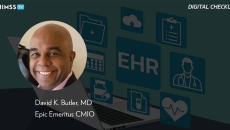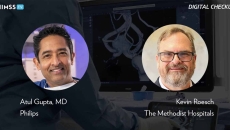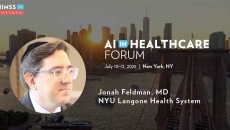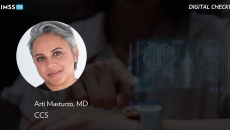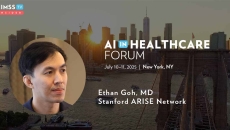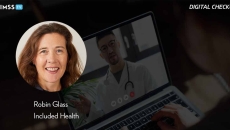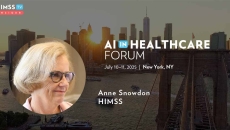Videos
Kari O'Rourke, president of Imagine Pediatrics, says providers can reduce ER visits and costs by wrapping care around the whole family, unifying fragmented records with technology and addressing child patients' social needs.
According to Dr. David K. Butler, Epic emeritus CMIO and clinical informatics leader at Calyx Partners, securing buy-in from clinicians and staff, tracking training and budgeting for post-go-live optimization are essential for lasting EHR adoption.
Dr. Atul Gupta, CMO of diagnosis and treatment at Philips, and Kevin Roesch, assistant VP of cardiology and imaging services for Methodist Hospitals, highlight the process of developing interventional labs to support Indiana’s residents.
NYU Langone Health System's Dr. Jonah Feldman says agentic AI can strengthen patient-physician relationships by helping patients prepare discussion topics and offering ongoing support between appointments.
Dr. Arti Masturzo, chief medical officer at CCS, discusses the pros and cons of RFK, Jr.'s proposal for every American to wear a government-issued health monitoring device within four years, including concerns around device data accuracy.
While shorter-term fixes like renegotiating payer contracts can help, Wipfli's Kelly Arduino recommends that hospitals heavily dependent on Medicaid rebuild community philanthropy and endowments.
Dr. Ethan Goh of the Stanford ARISE Network says researchers are testing AI's ability to mirror a doctor's diagnostic thought process, which could lay the groundwork for deploying safe, trusted AI in clinical care.
Included Health President Robin Glass discusses cost-estimating tools and says that while AI alone is an amazing technology, "you've got to have a human in the loop" to validate efficacy and deliver an experience that puts some patients at ease.
Matt Koehler, VP of product innovation at Surescripts, describes a scenario, which was presented at AHIP 2025, where prior auth can be completed in 30 seconds using coordination between the physician, PBM and EHR.
Anne Snowdon, chief scientific research officer at HIMSS, says while there are many reasons why AI is more readily adopted by other sectors, the central one is that in healthcare, lives are at stake.

